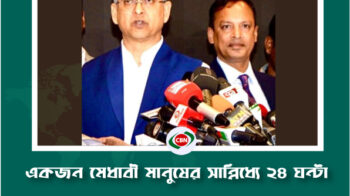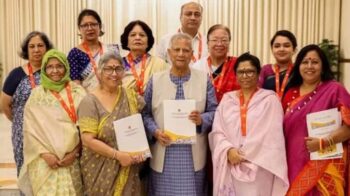To a large degree I agree that the “FINAL REPORT AND RECOMMENDATIONS” made by the advisory commission on Rakhine State chaired by Kofi Annan, the former secretary general of UN. However, some recommendations made by the said commission are factually impracticable, and in particular, page 27- 28 of paragraph 12 of the recommendations, where, the commission recommended that “the government of Myanmar should immediately establish timeline for citizenship verification process. This strategy should be transparent, efficient, and with solid basis in existing legislation”. This is because the main cause of Rohingya people, being stateless, was the enactment of Citizenship Law in 1982. Therefore, the existing citizenship law could not serve any useful purpose in solving the ongoing crisis and hence there is a need for an amendment in the recommendations.
The reasons as to why the recommendation made by commission must be amended to resolve Rohingya Crisis

The said Citizenship Law provides three categories of citizenship: full citizenship, associate citizenship, and naturalized citizenship.
Full citizenship
For a Rohingya to satisfy as a full Citizen, the Rohingyas’ family must be settled in the country before 1823. As it stands, it is almost humanly impossible for anyone to produce such evidence, therefore, Rohingya are automatically disqualified.
Associate Citizenship
For Rohingya people to qualify for the associate citizenship, they need to show that they have had already applied for citizenship under the Union Citizenship Act 1948. The deadline for applying for associate citizenship passed on 15 October 1982. Few Rohingya are believed to have applied because most were unaware of the 1948 Act or of its significance. New applications cannot be made. Therefore, it was not possible for many Rohingya people to apply.
Naturalised Citizenship
In order for an individual to apply for naturalised citizenship, the individual (and their offspring born within Burma) have to produce “conclusive evidence” that they entered and resided in Burma prior to 4th January 1948. This is also an effective exclusion of Rohingya, since they are in practice unable to provide the conclusive evidence required. The only documentation available to most of the Rohingya is a “family list” which indicates the names and dates of birth of each member of a household. But the “family list” is insufficient because it does not record place of birth.
Therefore, Rohingyas are effectively denied the opportunity to acquire a nationality despite being able to trace the Rohingya history back to the eighth century. Furthermore, the burden of proof has made it improbable for Rohingya to secure citizenship. Because of their formal legal status as foreign residents, Rohingya are subject to restrictions on their freedom of movement; are denied access to higher education; and are restricted from holding public office.
Violation of International Human Rights

The fact that the Rohingya are effectively excluded from citizenship is a clear violation of international human rights law. Under which, it is a fundamental principle that “everyone has the right to a nationality”. This principle is especially important in relation to children. The United Nations Convention on the Rights of the Child provides in terms that every child “shall have from birth…the right to acquire a nationality”. As a party to that Convention, Burma is obliged to “ensure the implementation” of every child’s right to acquire a nationality. Since it is almost impossible for a Rohingya, and in particular a Rohingya child, to acquire the Burmese citizenship, the 1982 Burma Citizenship Law violates the fundamental right to have a nationality.
Stateless
Moreover, since the Rohingya have no other nationality, the effect of the 1982 Burma Citizenship Law has rendered them stateless. This is very significant because Burma is specifically obliged to ensure a child’s right to acquire a nationality “where the child would otherwise be stateless”. Furthermore, it runs contrary to many other international instruments that aim to limit statelessness such as the Convention 1954 relating to the Status of Stateless Persons and the 1961 Convention on the Reduction of Statelessness.
Discrimination

The 1982 Citizenship Law also violates international norms against discrimination. Ever since the Universal Declaration of Human Rights in 1948 it has been recognised as a fundamental principle that “everyone is entitled to all the rights and freedoms set forth in this Declaration, without distinction of any kind, such as race…religion”. This principle has been repeated consistently in international conventions. The rights of children, including the right to acquire nationality, must also be respected ‘without discrimination of any kind’.
Profound Consequences
This denial of citizenship has profound consequences for the Rohingya. The 1982 Citizenship Law itself provides that citizens shall be entitled to enjoy the rights prescribed by Burmese law. Non-citizens like the Rohingya are not. This means that the Rohingya are limited in their ability to vote, be elected for public office, move freely within Burma, own land or receive public services such as education.
Conclusion
In light of above mentioned facts, it is clear that the main cause of Rohingya being stateless was the enactment of Citizenship Law in 1982. Therefore, to take pragmatic approach to ongoing Rohingya crisis the said clause of recommendations must be amended to enable Rohingya to have access to fundamental rights enshrined by UDHR.
——————-





 namely: Rohingya’s Right to life under International Law; Ebola; Corporate Social Responsibility (CSR); Environmental Law; International Humanitarian Law; Lawful uses of Arm and Force, Procedure of the International Criminal Court (ICC); and A Critical evaluation of International Human Rights Law within the regions (Europe, America, Africa, Asia and the Arab Charter) among others. As a part of his research, he had visited many international institutions. In February 2015, he had visited the European Union Headquarters in Brussels to participate international seminars with High officials of the respective institutions of the European Union among others.
namely: Rohingya’s Right to life under International Law; Ebola; Corporate Social Responsibility (CSR); Environmental Law; International Humanitarian Law; Lawful uses of Arm and Force, Procedure of the International Criminal Court (ICC); and A Critical evaluation of International Human Rights Law within the regions (Europe, America, Africa, Asia and the Arab Charter) among others. As a part of his research, he had visited many international institutions. In February 2015, he had visited the European Union Headquarters in Brussels to participate international seminars with High officials of the respective institutions of the European Union among others.






 এম.এ. আজিজ কারোর সাথে কারো কোনো বিষয়ে মতানৈক্য কিংবা
এম.এ. আজিজ কারোর সাথে কারো কোনো বিষয়ে মতানৈক্য কিংবা 
